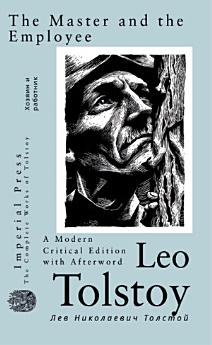The Master and the Employee
About this ebook
Tolstoy conceived the story in the winter of 1892–93 while overseeing famine relief in Riazan province; after extensive revisions it reached the public on 5 March 1895 in Posrednik pamphlet form, with fifteen thousand copies disappearing inside four days—an early example of rapid mass readership for a philosophic novella. The plot follows timber merchant Vasili Brekhunov, bent on profit, and his hired horse-keeper Nikita as they lose their way in a blizzard: the master circles greedily toward a forest sale, the servant endures hunger and frost, and, at dawn, one body lies frozen while the other rises transfigured by sacrificial warmth, a pattern of inversion that Tolstoy narrates without sentimental sugar. Critics of the 1890s saw in the tale a literary echo of the Sermon on the Mount; later it nourished debates on social ethics in the Duma era, inspired preaching in Methodist pulpits after its 1898 London translation, and even seeded the 2012 film Boxing Day, proving that this modest narrative still unsettles economic complacency with its wintry rigor.
This critical reader's edition presents a modern translation of the original manuscript, crafted for the modern reader with clean, contemporary language and simplified sentence structures that clarify his complex Russian phrasing and specific antiquated references. Supplementary material enriches the text with autobiographical, historical, and linguistic context, including an afterword by the translator on Tolstoy’s personal history, impact, and intellectual legacy, an index of the philosophical concepts he employs—emphasizing Existentialism and influence by Schopenhauer—a comprehensive chronological list of his published writings, and a detailed timeline of his life, highlighting the personal relationships that shaped his philosophy.











